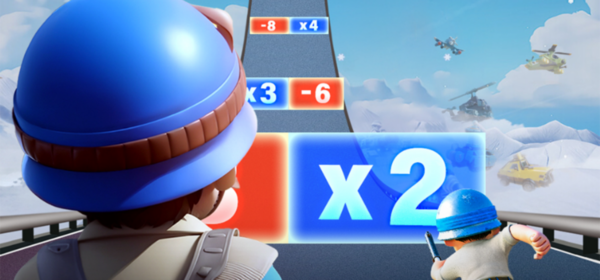"She had a lot of problems, but marketing became fatal" — Schreier told why Google Stadia failed
The streaming service Stadia was an ambitious project of Google. It was predicted that he would be able to “radically change” the gaming industry and oust consoles from the market. Journalist Jason Schreier with reference to his own sources, he told why this did not happen.
The main thing from the material:
- Stadia’s marketing campaign was bright. At numerous presentations, Google has promised that its service will allow you to run high-budget games on any device: smartphones, televisions and PCs. Say, gamers will get access to a large library of exclusives and blockbusters without buying expensive Xbox or PlayStation;
- They also promised that the service’s games would support innovative features. For example, State Share. With its help, gamers could stream on YouTube and share their saves with other users there so that they could complete the game from the same place.;
- at the start, everything was not so rosy. Yes, cloud technologies worked. That’s just the library was scarce, and there were no exclusives at all, as well as parts of the promised functions;
- also, the audience did not like the Stadia business model itself. People were waiting for something similar to the Xbox Game Pass, where a subscription gives access to all the products of the platform at once. Whereas here they had to pay $60 for each title. Moreover, the purchased games were stored not on their personal devices, but on Google servers;
- this led to the fact that the sales of controllers and the number of monthly active users turned out to be hundreds of thousands less than expected. Last year, Google even gave away gamepads for free due to the fact that it produced too many of them;
- but everything could have been different, Schreier believes. Back in 2018, the company tested a beta version of Stadia called “Project Stream“. It allowed you to play Assassin’s Creed Odyssey in the Google Chrome browser, and this alone was enough for the players to warmly accept it;
- the developers proposed to hold another beta test in 2019 instead of the release. They hoped to get a little more time to finish the promised functions. But Phil Harrison and other Stadia team leaders, many of whom came from the console world, were against it. They wanted to promote the service as a set-top box;
- According to sources, Google has spent tens of millions of dollars to add major games like Red Dead Redemption II to Stadia. The amount that the company was willing to invest shocked experienced developers. But even that wasn’t enough — the platform still needed exclusives.;
- it was with exclusives that the Stadia team hoped to fix the unsuccessful launch of the service. The developers were happy to work on prototypes that worked only on a cloud platform. For example, one of the prototypes looked like a cross between Google Assistant and Tamagotchi. It was supposed to allow players to interact with intelligent creatures in different ways;
- On February 1, Google shut down internal studios developing games for Stadia. Although just a week before, Harrison praised the employees for their progress and promised to share plans for 2021. The platform itself will continue to work, and several planned exclusives will be released on it. But now the company intends to pay all attention to third-party studios.
“Stadia had a lot of problems, but marketing was a fatal mistake. I could tell a completely different story if it all started with a quiet launch without promises to become the “future of games” and attempts to immediately defeat Xbox/PlayStation,” Schreier added on Twitter.

